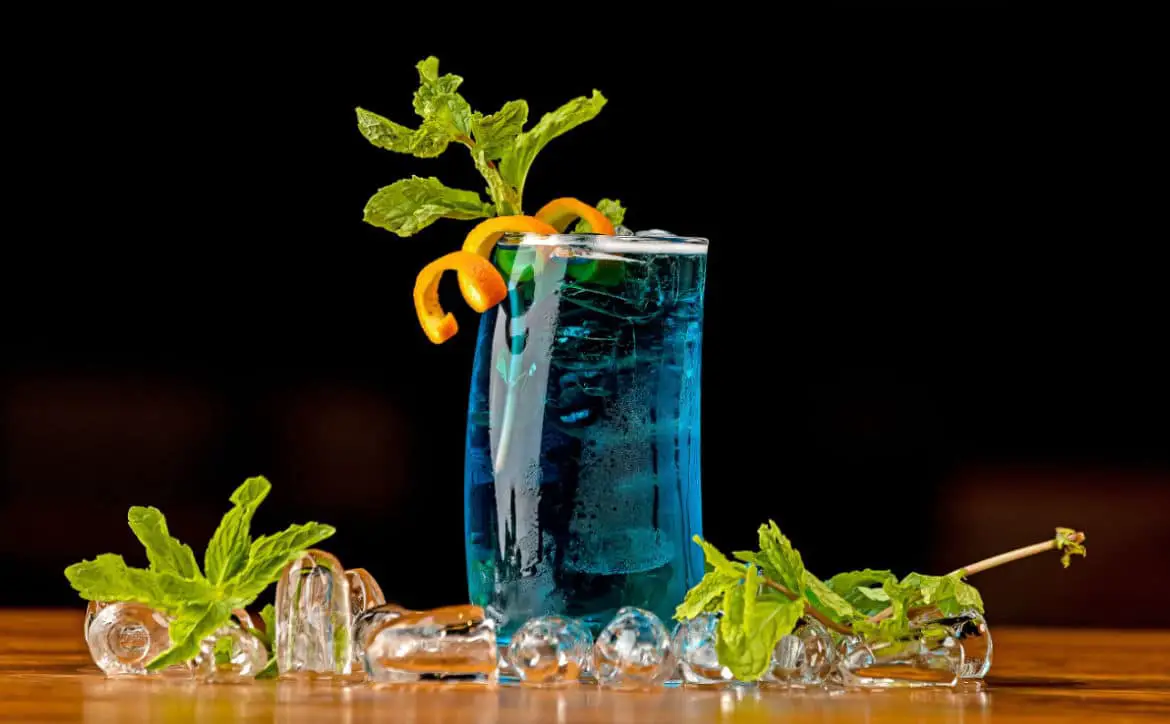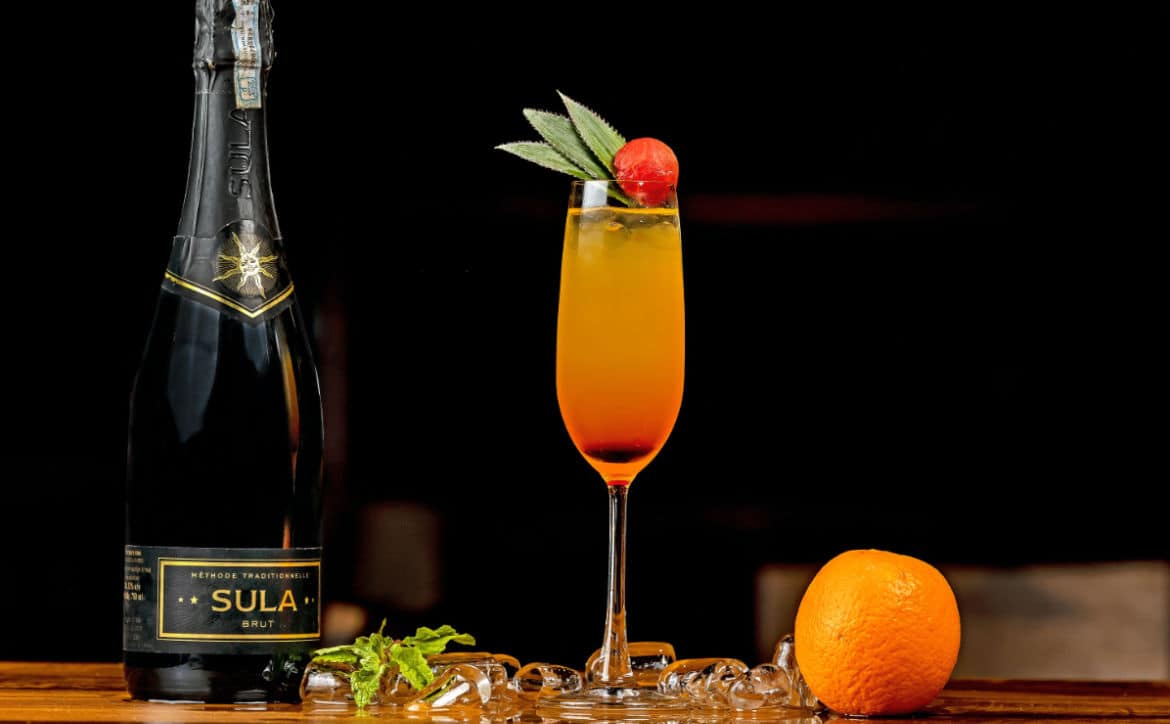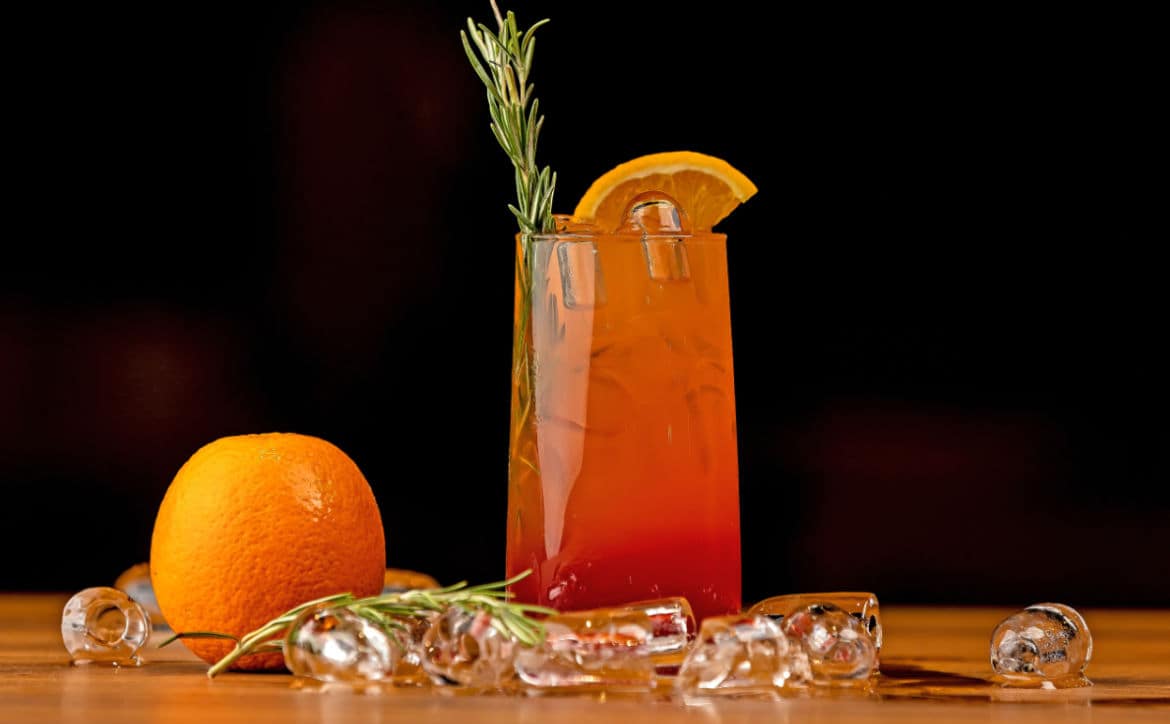Imagine walking into one of the finest bars in your neighborhood. However, you quickly notice that this bar seems a bit different. You’re surprised to find that these bartenders look like chemists as they craft cocktails for customers. This scenario is becoming more realistic in modern bars, as bartenders use high-tech mixology gadgets to stand out from the crowd.
Estimated reading time: 5 minutes
Mixology is a trending term in contemporary bar vocabulary, but what does it mean? In simple terms, mixology describes an in-depth and particular approach to mixing cocktails. As mentioned above, mixologists are considered bar chemists as they experiment and craft unique, innovative cocktails to wow their guests.
Practicing mixology requires the use of different types of technologies and techniques. Below, you’ll learn more about some of the most interesting innovations in advanced mixology and how these technologies are changing the bartending landscape.
1. Rotary Evaporator
A rotary evaporator, commonly referred to as a rotovap (sometimes spelled rotavap), is widely used in chemical laboratories. However, it’s carving out a place in mixology as well. The main purpose of a rotovap is to efficiently and gently remove solvents from liquids using evaporation.
The result of a rotovap is a well-crafted, flavor-focused cocktail that is made via vacuum distillation. Many high-end bars invest in a rotovap, but your average bar may not have one for its bartenders or mixologists. A rotovap is expensive; they run around $11,000. Rotovaps can add flavors to cocktails or remove unwanted characteristics of ingredients within the cocktail.

2. Centrifuge
Another piece of equipment used in science labs is the centrifuge. A centrifuge uses centrifugal force to separate various components of a liquid. It spins liquids at high speed in a container and differentiates elements of a fluid. A centrifuge can clarify juices or add extra flavors or texture to certain cocktails in mixology.
A widely used centrifuge in mixology is the Spinzall by Booker and Dax. This product is under 20 pounds, portable and affordable for most bars and their mixologists. Dave Arnold, a master of mixology, created the Spinzall to help mixologists tap into their creativity.
3. Ultrasonic Homogenizer
Using an ultrasonic homogenizer in bartending was inspired by molecular cuisine, a popular trend some restaurants are exploring. Mixologists now use these homogenizers to blend emulsions, infuse drinks, and even age wines or spirits.
The ultrasound waves in these homogenizers allow mixologists to alter the taste of their cocktails, creating a novel experience full of flavorful combinations for the drinker. Mixologists will often use herbs, wood, spices, and botanical extracts in tandem with a homogenizer. For example, a mixologist may use oak chips and an ultrasonic mixer to create a whiskey that tastes like it’s been aged in a barrel for several years.
4. Dehydrator
Mixologists will also use equipment to dehydrate certain garnishes to make their cocktails more appealing to the eye. It’s common to see modern cocktails with dehydrated fruits, especially orange slices. A dehydrated cocktail may also have powders, such as salt or sugar, to rim the margarita glass.
Mixologists can even create edible leather with a dehydrator. Edible leather is a blend of puréed fruit, liquids, and herbs that dries out during dehydration. Once it’s dry, it retains a flat shape and can be eaten alongside a tasty cocktail. Dehydrators are quite popular, so bars don’t need to spend an arm and a leg to buy one for their skilled mixologists.
5. Herb Garden
Some of the most popular cocktails require mixologists or bartenders to use a concentrated blend of herbs – consider the classic Old Fashioned, for example. Without dashes of bitters, the famous bourbon drink would not be the same. That’s why some mixologists will use an herb garden to grow various herbs while crafting the perfect cocktail.
The Aerogarden is a hydroponic herb garden that can grow rosemary, basil, oregano, thyme, and other herbs indoors. The garden comes equipped with an overhead lighting system to grow harvests faster. Leading mixologists sometimes prefer using local ingredients for their cocktails, which is why they may use an in-house herb garden.

6. Smartphone Apps
While smartphone apps may not be the most advanced technologies, mixologists can refer to apps on the Google Play and iOS App Stores for guidance and cocktail inspiration. Some mixology apps are best suited for beginners or hobbyists. Still, even skilled mixologists can use these apps to learn something new.
BarSpoon, Cocktail Flow, Mixel, Bartender’s Choice, and Highball are some popular mixology apps on the market. Mixologists can leverage apps while on the job and craft a new cocktail or improve the flavor of their cocktails.
7. Virtual Reality (VR) and Augmented Reality (AR)
Two novel technologies emerging in multiple industries, most notably gaming, are augmented reality (AR) and virtual reality (VR). While VR and AR are commonly associated with consumer electronics and video games, some mixologists and bartenders incorporate them into their customer experience (CX).
One Michelin-star-rated restaurant in London – City Social – added AR visuals to their cocktails, which impressed guests and entertained them during their bar experience. For example, one scene included a mini, virtual version of Marilyn Monroe sipping on the customer’s drink and blowing kisses.
New technologies are adopted in various industries, and mixology and bartending are no exception. Customers of legal age want novel experiences while sitting at a bar, whether that means engaging in AR or simply watching a mixologist spend time crafting a new cocktail.
New Tech: Raising the Bar in Mixology
While some may think a mixologist is the same as a bartender, the two titles differ. Bartenders often serve customers drinks at a fast pace. A mixologist has other skills, such as precision, attention to detail, and creativity to make special drinks.
However, this is not to say that bartenders are better, worse, or less skilled than mixologists. Both types of professionals bring valuable experience to the table and keep customers happy and satisfied at their bars. More technologies will advance the field of mixology, so it’ll be interesting to see how mixologists use them to bring their cocktails to the next level.
What do you think of mixology? Please share your thoughts on any of the social media pages listed below. You can also comment on our MeWe page by joining the MeWe social network.










